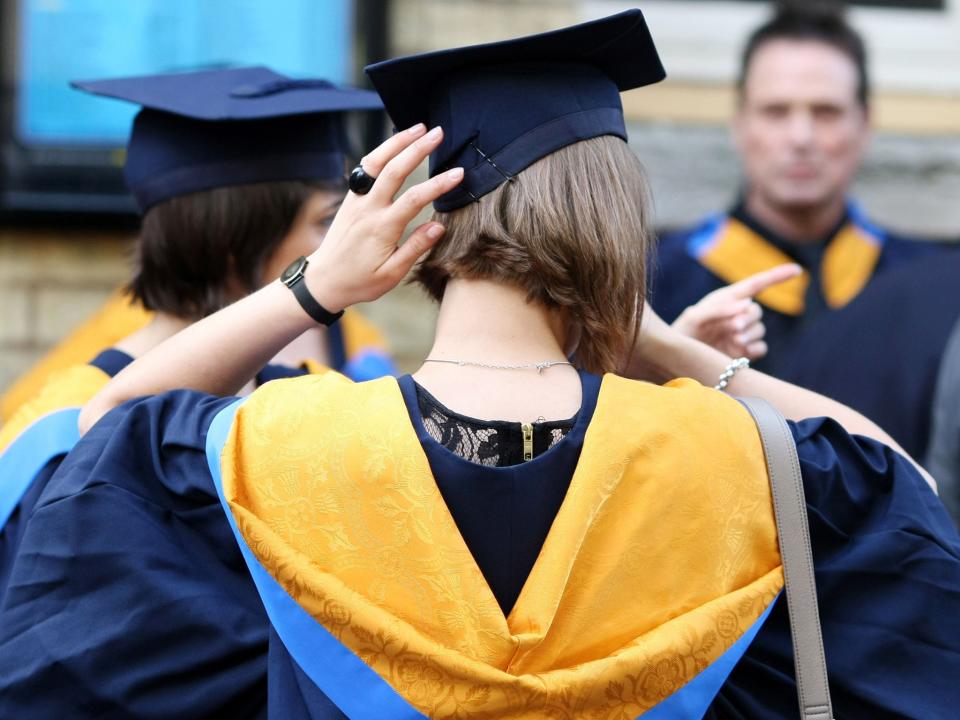Students to be hit with another 'eye-watering' interest rate rise on tuition fee repayments

Students and graduates will face an “eye-watering” rise in interest rates on their loans of up to 6.3 per cent from this autumn.
From September, it is likely to go up from 6.1 per cent – after the retail prices index (RPI), a measure of inflation, increased over the past year.
The RPI stood at 3.3 per cent last month, compared to 3.1 per cent in March 2017, figures show.
It comes amid continued concerns about the student debt burden and high interest rates on loans, as well as whether students are receiving value for money with university tuition fees.
Last year, ministers faced criticism when loan interest rates rose from 4.6 per cent to 6.1 per cent. But they now insist that the additional interest rate rise will have no impact on monthly repayments and that few people are likely to be affected.
However, Jake Butler, an expert at Save the Student’s money website, said that another rise will add more to “the pot of student loan debt”, which in turn has a psychological impact on students and graduates.
“Whilst the increase in interest is not as large as the jump we saw last year, it’s yet another increase on an already astronomical percentage,” he said. “It’s important that students and graduates remember that this increase in the interest will likely just add even more to the pot of student loan debt that they’ll end up never paying back.
“As I always say, this is more of a psychological issue than a monetary one.”
Angela Rayner, the shadow education secretary, said: “The latest rise in RPI means that hundreds of thousands of students will be seeing the unjustifiably high interest rates on their student debt rise once again, to an eye-watering 6.3 per cent.
“Students are graduating with over £50,000 in debt, and face these interest rates from the moment they begin their courses, causing their debt to skyrocket during their time at university, when they cannot even begin to pay it back. As a direct result of the choices made by Tory ministers, those interest rates will now rise once again.”
Students can get government-backed loans to cover the cost of their tuition fees – which stand at up to £9,250 a year in England, as well as to help with living costs.
Those at university this autumn will be charged interest of 6.3 per cent – RPI plus 3 per cent.
However, only graduates earning more than £45,000 will be hit by the full 6.3 per cent interest rate.
A review of higher education, formally announced by Theresa May in February, is due to examine the role of interest rates on student loans.
A Department for Education spokesman said that the government’s decision to raise the repayment threshold to £25,000 from £21,000 will save 600,000 graduates up to £360 a year.
“This change in interest rate will make no impact on a borrowers’ monthly repayments and very few people are likely to be affected by the increase,” he said. “Once the loans are in repayment, only borrowers earning over £45,000 are charged the maximum rate. This ensures that they make a fair contribution to the system.
“The government’s review of post-18 education and funding is also under way and will look at how students and taxpayers are getting value for money, including the role of interest rates.”

 Yahoo News
Yahoo News 